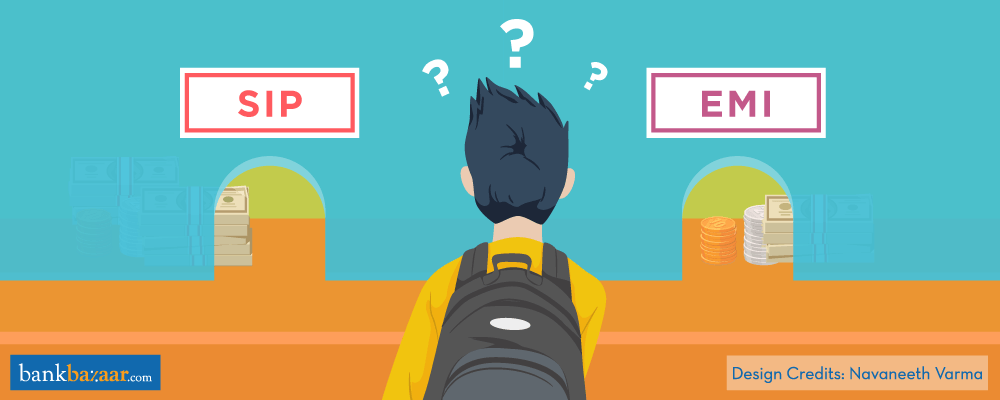Buying A Bike? Should You Go For equated monthly instalment (EMI) Or Self Fund Through Systematic Investment Plan (SIP)?

With a fall in interest rates, borrowing instruments are gaining popularity. The younger generation especially is relying on borrowing facilities such as Credit Card, Personal Loans etc to buy expensive gadgets like bikes, cars, smartphones etc. Whereas the older generation is borrowing funds to accomplish the fund shortages for unplanned buying. Borrowing is not a bad practice, but unplanned borrowing is not healthy for your personal finance.
When you borrow money, then equated monthly instalment (EMI) is used to repay the outstanding amount along with the accrued interest. EMI size depends on how long you take to repay the money, longer tenure means more interest payment to the lending institution.
Systematic Investment Plan (SIP) is a tool to grow your fund over a period of time by investing in Mutual Fund schemes. SIP helps you to earn a return on your fund and achieve your various financial objectives. Longer investment period can help you to build a bigger corpus.
How EMI Can Put Pressure On Your Financial Planning?
Loans give you the capacity to buy things that otherwise you can’t afford from your present income. The underlying concept thus is basically to use your future capacity to make things affordable today with the support of a loan instrument.
A loan should be used carefully based on need. A loan taken without due considering cause an imbalance between your income and expenses. You may have to compromise with some of your financial objectives to repay EMIs.
For example, your net income is Rs. 6 lakh p.a and you save Rs. 20,000 per month for objectives such as the education of your children, buying a home, vacation planning etc., after meeting all the regular expenses. A decision like taking a Car Loan without making any adjustment to your financial plan will put pressure on your future plans and you may find it difficult to achieve your objectives.
How SIP Can Help You Achieve Your Financial Objectives?
SIP is an effective investment tool that can help you achieve your short and long-term financial goals. SIP requires you to invest a certain amount at regular intervals in selected Mutual Fund schemes. Your investment grows with time and helps you build a bigger corpus to achieve your financial objectives.
Suppose, you want to buy a bike and you don’t have sufficient money in hand, and you decide to invest in equity Mutual Fund through SIP for a year. After a year, you’ll be able to save money and get good returns on it. You can use the corpus to purchase the bike from your own fund.
SIP Vs EMI
Let us find out which is better for you, SIP or EMI. Suppose, you want to buy a bike worth Rs 1. lakh and you don’t have money in-hand for immediate purchase. You have two options, either to buy it on loan at 9.5% p.a. interest or to save money through SIP and build a corpus in 12 months to buy it. If the SIP gives a return of 14% p.a., then you would need to deposit an instalment of Rs. 7,722 p.m to get a corpus of Rs 1 lakh in 12 months.
|
EMI Vs SIP |
|||||
| (Amount in Rs) | |||||
| Monthly instalment | Tenure (12) | Interest/Return (% Pa) | Amount Paid in 12 months | ||
| A | EMI on Rs. 1 lakh Loan | 8,768 | 12 | 9.5 | 1,05,216 |
| B | SIP to get a corpus of Rs. 1 lakh | 7,722 | 12 | 14 | 92,664 |
| Amount Saved (A-B) | 12,552 | ||||
It is clear from the example above that if you pre-plan or delay your buying, and invest the money to build the requisite corpus then you can save big amount in comparison to buying the product on loan.
Nowadays retailers have made big-ticket or any kind of shopping smooth for the customers by accepting Credit Cards and converting the purchase into EMIs. Online shopping portals even sell small value products on EMIs. It is better to exercise cautions as any kind of unplanned debt can do some serious damage to your personal finance. A SIP could be a better choice over EMIs as it will not only keep your debt low but also help in improving your Credit Score.
BankBazaar is a leading online marketplace in India that helps consumers compare and apply for Credit Card, Personal Loan, Home Loan, Car Loan and insurance.